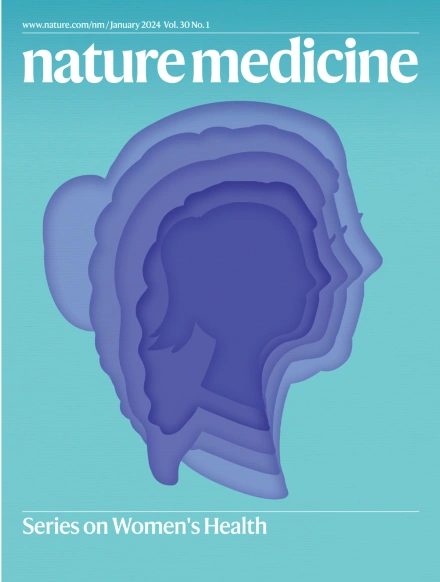Resurgence of malaria and artemisinin resistance in Africa requires a concerted response
IF 58.7
1区 医学
Q1 BIOCHEMISTRY & MOLECULAR BIOLOGY
引用次数: 0
疟疾和青蒿素耐药性在非洲卷土重来,需要采取协调一致的应对措施
疟疾是全球发病和死亡的主要原因之一,2022年估计有2.49亿例病例和60.8万例死亡,其中94%和95%分别发生在非洲1。由于采取了创新的公共卫生措施,非洲与疟疾有关的死亡率大幅下降,从2000年的80.8万人死亡降至2022年的58万人(参考资料1)。9个非洲国家已经消灭了疟疾,包括5个北非国家(埃及、利比亚、突尼斯、阿尔及利亚和摩洛哥)和一些撒哈拉以南国家(莱索托、毛里求斯、塞舌尔和佛得角)2。引入和扩大疟疾疫苗可以加强全球消除疟疾的努力。然而,近年来,非洲大陆面临着疟疾死灰复燃的问题,同时出现了令人担忧的青蒿素耐药性,有可能破坏数十年来取得的进展。正在进行的疟疾预防项目的有效性受到气候变化、杀虫剂和耐药菌株的出现以及蚊子新变种的威胁。非洲新出现和重新出现的公共卫生紧急情况(如麻疹和马尔堡病毒的爆发)以及武装冲突中断了基本卫生服务的连续性,分散了政治和公共卫生领导的注意力,并要求转移有限的公共卫生资源,从而恶化了疟疾规划的效力。
本文章由计算机程序翻译,如有差异,请以英文原文为准。
求助全文
约1分钟内获得全文
求助全文
来源期刊

Nature Medicine
医学-生化与分子生物学
CiteScore
100.90
自引率
0.70%
发文量
525
审稿时长
1 months
期刊介绍:
Nature Medicine is a monthly journal publishing original peer-reviewed research in all areas of medicine. The publication focuses on originality, timeliness, interdisciplinary interest, and the impact on improving human health. In addition to research articles, Nature Medicine also publishes commissioned content such as News, Reviews, and Perspectives. This content aims to provide context for the latest advances in translational and clinical research, reaching a wide audience of M.D. and Ph.D. readers. All editorial decisions for the journal are made by a team of full-time professional editors.
Nature Medicine consider all types of clinical research, including:
-Case-reports and small case series
-Clinical trials, whether phase 1, 2, 3 or 4
-Observational studies
-Meta-analyses
-Biomarker studies
-Public and global health studies
Nature Medicine is also committed to facilitating communication between translational and clinical researchers. As such, we consider “hybrid” studies with preclinical and translational findings reported alongside data from clinical studies.
 求助内容:
求助内容: 应助结果提醒方式:
应助结果提醒方式:


